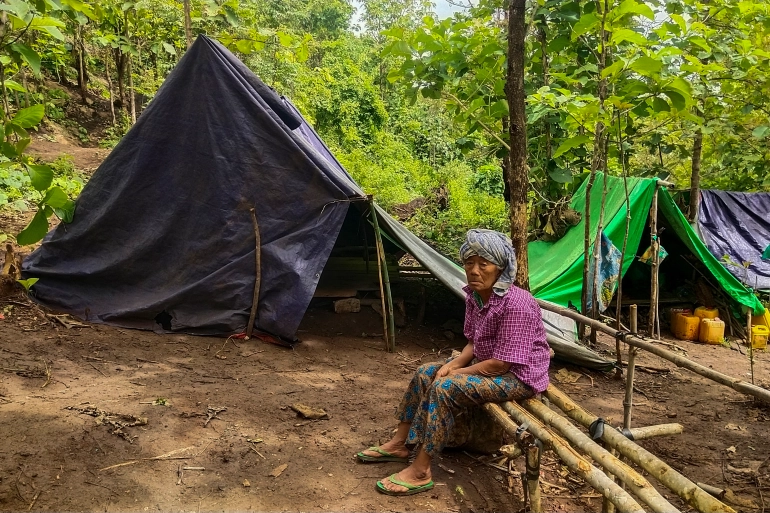Chris Sidoti quoted in The Australian
Aussie aid funds bypass Myanmar junta
18 November, 2021
The federal government has hit back at claims that aid earmarked for Myanmar has been “frozen”, insisting money is being channelled through to UN agencies and NGOs on the ground as it navigates how to ensure funds don’t end up in the hands of the military junta.
Health advocacy group Results International urged the government this week to “unfreeze” $95m in desperately needed aid for Myanmar, where millions of people are in need following the February 1 coup that ousted the government of Aung San Suu Kyi.
But a government spokesman said aid money was getting to those in need – with a focus on the most vulnerable, including women and girls – via independent agencies on the ground after the development program was redirected away from ministries and related entities.
Australia has committed $95.5m in aid to Myanmar in 2021-22, similar to last year’s budget, which was almost fully allocated after $11.5m was redirected from government projects in the last months of the financial year to the World Food Program, Save the Children and support for survivors of gender-based violence. In addition, the government continues to provide assistance for UN projects that deliver primary healthcare, emergency shelter, maternal and child support cash transfers and obstetrics care.
“All of Australia’s existing multilateral and non-government partners in Myanmar have continued to deliver assistance to crisis-affected people. Australia’s development and humanitarian partners operating in Myanmar continue to adapt their programming to focus on the most immediate needs of the people, including as a result of the February coup and Covid-19,” a spokesman for the Department of Foreign Affairs and Trade said.
“We do not provide any funding to the regime, and we take proactive steps to ensure that Australian assistance to Myanmar does not legitimise or give direct benefit to the regime.”
Myanmar has been in chaos since the coup and crackdown on a civil disobedience campaign that has seen millions walk from their jobs and refuse to pay taxes to the junta. The UN has warned some three million people are in dire need of supplies – many of them in cities such as Yangon and Mandalay – while close to half of the country’s 54 million people are living below the poverty line.
Some 220,000 have also been internally displaced – many in ethnic minority provinces – due to violent armed clashes as the prolonged crackdown has triggered a growing armed resistance movement by civilian militias.
Chris Sidoti, an Australian human rights lawyer and member of the Special Advisory Council to Myanmar assisting those working on human rights and accountability, told The Australian getting aid into Myanmar was an ongoing challenge thanks to a lack of co-operation from neighbouring countries. “It would be much easier (to get aid in) if surrounding countries like Thailand and India were prepared to allow aid to be transported by land.
“Aid is getting through to UN agencies but for some reason the quantity seems to be quite small.”’


